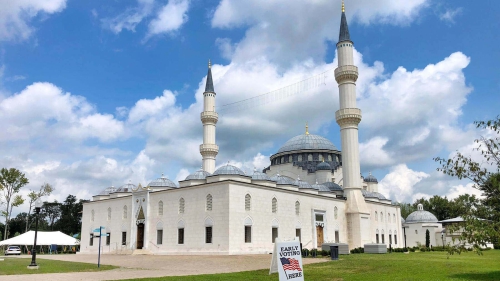Guatemala: at the Point of Return
Panic mounted late Monday, Nov 8, when results of the first round in Guatemalan elections were delayed for 24 hours. Thousands of villagers flooded vote tabulation halls, shouting with angry voices, "It's time, it's time."
It was time indeed for Guatemala's four decades of civil war to become just one more unpleasant memory in a country's history overshadowed by painful memories. Although the delay was found to be a mere technicality in the vote count resulting from heavy rain and little disturbances in eight of the country's 330 municipalities, tensions are still high. The results were announced later, declaring no ultimate winners and setting Dec. 26 as the date for runoff election between the leading two candidates, Alfonso Portillo and Oscar Berger.
Alfonso Portillo, a populist lawyer, is affiliated and heavily supported by the Guatemalan Revolutionary Front. It is debatable whether such an association served Portillo's interests or harmed them. Human rights activists have warned the people of Portillo's ties with former dictator Gen. Efrain Rios Montt. The General was the founder of the party and is well known for human right abuses during his 17 months in office following a military coup which he lead in the early 1980s.
Although Rios Montt was deposed by his fellow officers only 17 months after taking charge of the country, the man is now seen as Portillo's shadow everywhere Portillo appears. Portillo however, rejects the notion that his relationship with Montt will effect his performance in office, pledging to be his own man. It is unquestionable that Portillo's heated speeches and tough stands on many issues are generating unprecedented trust from poorer Guatemalans who see in him a liberator from hunger, crime and inequality. On Tuesday, Portillo gained 48 percent of the total vote, falling only two percent shy of winning the election in the first round.
Being less influential, but a survivor, Oscar Berger, is the ruling party candidate with 30 percent of the total vote. Berger, whose support is derived from urban votes, carries a similar reform outlook to the one espoused by Portillo. Though both descend from right-wing conservative stands, each man has succeeded to acquire the trust of very different social classes.
The New Nation Alliance, consisting of ex-rebels, has only obtained 12 percent of the total vote. If the leftist party uses its humble gains, it can certainly tip the scales for either candidate in the runoff.
The Guatemalan elections mean much more to most Guatemalans than an opportunity for one to freely express his opinion, although such a notion is vital. Many issues are at stake for a country where a 36-year civil war has claimed the lives of 200,000 and the disappearance of thousands. The 1996 peace accord signed between rebels and a government has indeed brought a badly needed peace, of which Guatemalans have long dreamt. The peace accord however, has failed to eliminate the primary factors responsible for the civil war. Such failure was translated thereafter to fear of similar violence. Social, political and economic injustices have merely evolved to injustices such as endless poverty and a higher crime rate.
Many Guatemalan voters went to cast their votes, hoping for a miracle, a hero, or a liberator that would bring a storm of change to equalize the poor Indians and peasants to the elite and wealthy. Portillo's fiery speeches were a fulfilling change to those who ran out of patience, hope and needless to say, money. Even staple foods -- corn and beans -- are becoming unaffordable to many Guatemalans. Perhaps understanding this fear of the future, mounting in the hearts of many poor Guatemalans, will explain the waves of anger that swept through the impoverished streets of Guatemala when the election results were delayed.
It is still unsafe to claim that Guatemala's quest for peace and justice stand at the point of no return. Even though people's ambition for calm and peace can hardly be doubted, no one can guarantee that a hungry people that feels oppressed and violated will remain peaceful under any circumstances. On the other hand, it is safe to declare that Guatemala is jumping two steps forward to achieve a better future. The fact that several parties with evidently different ideologies have fairly competed in the elections introduces a new notion that has been foreign to Guatemalans for many years. Guatemalan parties and leaders are slowly but surely acknowledging the existence of one another.
The Sunday elections are said to be the first peacetime elections. While such a fact is very encouraging, the outcome of the elections is what will determine the experience's success or failure. As always, the people will hold those who promise peace and prosperity accountable. These factors range from freedom of expression to ones ability to afford the price of corn and beans as most of Guatemala's poor once could.

















